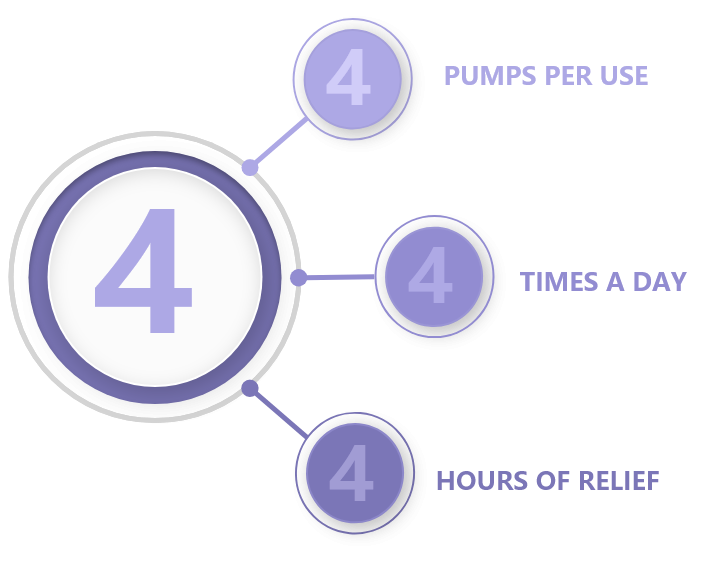Table of Contents
Many of us know someone who has asthma and may need to use an inhaler. It is essential to understand how asthma can affect someone, their overall health, and oral health.
What is Asthma?
According to the National Heart, Lung, and Blood Institute, asthma is a chronic condition that affects the airways in the lungs. The airways that carry air in and out of the lungs can become inflamed for an asthmatic person. If this continues, these passages may narrow.
When this happens, this is what may create symptoms of chest pain or difficulty breathing. Unfortunately, there is no cure for asthma, and its causes are not always definitive. However, it does affect everyone differently. Be aware of any asthma symptoms you may be experiencing or what may be triggering them.
Some asthmatic triggers are cold air, pollen, pollutants in the air, certain medications, etc. Being aware of your asthma triggers can help you avoid asthma symptoms such as excessive coughing or chest pain.
How is Dry Mouth Related to Asthma?
As a result of mouth breathing or inhaler use, you may also experience dry mouth or xerostomia. Mouth breathing decreases moisture in the mouth, ultimately leading to dry mouth. This happens because more air enters the oral cavity.
In addition, depending on the type of inhaler you use, this may be drying out your oral cavity. It is vital to speak with your doctor about the best inhaler treatment for you.
Also, some medications used to treat asthma may create dry mouth symptoms. Over 500 different medications list dry mouth as a possible side effect. Check with your doctor to see if one of your asthma medications may be creating dry mouth symptoms.
Why is Dry Mouth a Problem for Asthmatics?
Dry mouth is a problem, especially for those living with asthma, because it may decrease saliva production. This can leave your oral cavity susceptible to foreign pathogens.
If you are asthmatic, you want to avoid getting sick, especially with any foreign pathogens that could trigger coughing. Unfortunately, these could worsen your already present asthma symptoms.
Equally, you may be experiencing other dry mouth symptoms such as:
- Difficulty chewing, speaking, eating, swallowing
- Rough or dry tongue
- Mouth sores
- Oral infections
- Bad breath
- Metallic taste
Dry Mouth Remedies
If you are experiencing dry mouth symptoms along with your asthma symptoms, here are some remedies you can try:
- Stay hydrated throughout the day
- Use an alcohol-free mouthwash
- Utilize a humidifier to add moisture to your space
- Improve your oral hygiene
- Limit caffeine intake
- Use Lubricity Dry Mouth Spray for symptomatic relief
While asthma affects everyone differently, creating an asthma action plan with a health professional can help you take control of your asthma symptoms, as for dry mouth symptoms caused by asthma, knowing how this will affect your mouth and overall health is crucial.
What is Lubricity?
Lubricity is an odorless, flavorless, and colorless spray that is perfect for people who are overly sensitive to taste. Our Dry Mouth Spray also has Zero Calories, NO Gluten, NO Alcohol, NO Sugar, and is Vegan-Friendly!
Lubricity Dry Mouth Spray has 5 simple ingredients: Hyaluronic Acid, Xylitol, Sodium Benzoate, Potassium Sorbate and Purified Water. This simple formula is clinically proven to alleviate your dry mouth symptoms for up to 4 hours.
How to use Lubricity?
Lubricity Dry Mouth Spray comes in a convenient 0.5 oz and 2oz spray bottle. Simply point and spray 3-5 times per use. When used as directed, Lubricity provides up to 4 hours of relief from dry mouth symptoms.
For best results, we recommend using Lubricity Dry Mouth Spray as follows:
Use Lubricity after a meal and before bed. If needed, Lubricity can be used more than 4 times per day. *Some may need 3-5 pumps per use, as the bottle needs to be primed upon opening. Relief from symptoms begins immediately. Maximum effectiveness is achieved after 72 hours of continued use.
Important: If you are pregnant or breastfeeding, please consult your physician before using Lubricity. DO not use Lubricity if you are taking any medications that are contraindicated with the product. Please consult with your physician if you have any concerns regarding the use of this product. Keep out of reach of children.
Did you find this article helpful?













